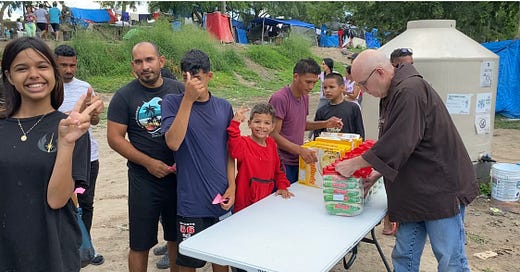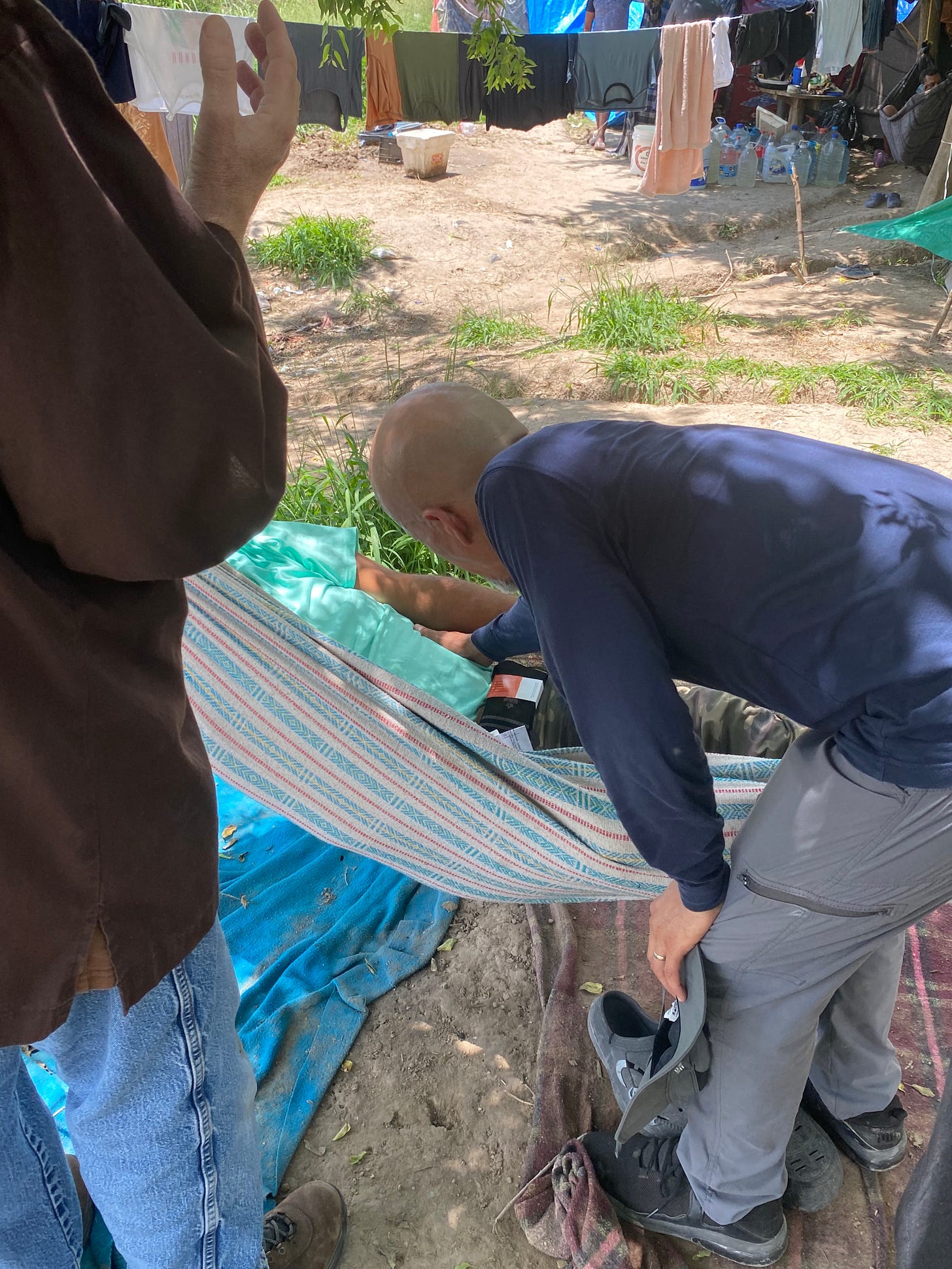'You do what you can with what you have'
Carrying out 'corporal works of mercy' at the migrant encampment in Matamoros, Mexico.
It would be a stretch to describe me as “religious,” but in my work at the U.S.-Mexico border and here in Central New York, I volunteer alongside many men and women who are strong in their faith.
They are all good people, and they do not use religion to mistreat or demonize anyone. From my Catholic upbringing, I remember a term known as “corporal works of mercy” such as feeding the hungry, sheltering the homeless and visiting the sick. It is difficult work, and these people do it day in, day out. I have the utmost respect for them and their faith.
When I returned Tuesday to the migrant encampment in Matamoros, Mexico, our group of eight volunteers from Team Brownsville included two pastors and a Franciscan brother.
Yet again, the border has provided me with profound moments I will never forget.
In the middle of the encampment of about 3,000 migrants, our group had just finished distributing boxes of food, socks, diapers, hygienic wipes and other supplies to hundreds who lined up for what seemed like two hours under a merciless sun.
Suddenly Brother Donald, the Franciscan, approached me and said he had been asked by two migrants to pray for sick people in the camp. He needed a translator, and Pastor Abraham, a native of Mexico and organizer of these distributions, wasn’t in the immediate area.
I volunteered to do what I could with my intermediate Spanish, so Brother Donald led me to a man standing in the shade holding his 2-year-old granddaughter, Samanta.
Samanta was sick, the grandfather told us. He held her in his arms, her face buried in his chest. Brother Donald said a prayer and I did my best to translate. I have no recollection of his words, or my translation. But as a friend told me later, even if the translation wasn’t perfect, the sincerity surely came through.
I then asked the grandfather if he had walked to the medical tent in the encampment staffed by Medicos Sin Fronteras (Doctors without Borders).
He had done that, he said, but there were already 30 people in line.
Later, neither Brother Donald or I could remember if the grandfather gave us his name or told us the nature of Samanta’s illness.
All I could think of was that one of my three grandchildren is Samanta’s age, and the torment I would be going through if I were in that grandfather’s place — living under a tarp among thousands of other desperate people, in need of medical help for my grandchild. Walking away from that was excruciating, an awful assault of sadness, anger and yes, guilt.
Why this grandfather and not me? Why Samanta and not my Rusty, or Hazel, or Felicity Rose?
It’s so unfair, and our government is OK with it. The powers-that-be in both political parties are willing to sacrifice the lives of innocent children and families, just so they can get re-elected.
And many of them wear their religion like a badge of honor.
—
Moments after Brother Donald and I said good-bye to the grandfather and Samantha, we were approached by the other man, Jonatan, who had asked for prayers for a friend.
Thankfully, Pastor Abraham returned at that moment and was able to join Brother Donald in praying for a young man, Carlos, who was resting in a nearby hammock. Carlos had serious back and abdominal pain, possibly from a hernia.
Brother Donald said a prayer while Pastor Abraham prayed and placed a hand on the man’s side.
What is Carlos’ condition as I write this 48 hours later? What about Samanta's?
What about the thousands of others in the encampment? And the dozens of Haitians trying to survive in their nearby “camp,” an abandoned gas station on a busy street corner in Matamoros?
I’ll never know.
In our van that afternoon I heard these words, and I can't recall if it was one volunteer who said it, or an exchange. They are difficult to accept, but spot-on.
“You do what you can with what you have. … Otherwise you’d go crazy.”






She seems to have been a pretty incredible person: practical, direct and disciplined (in the best possible way). I'm not surprised that her name is still mentioned. The folks of faith whom I admire locally are also ones who try to live their faith, rather than blather about it. (By the wayt, Day was a very good writer; you might enjoy finding one of her books).
Very powerful. A good reminder for me that religion can stand for a lot of good. I often forget that these days. Great writing as well Jim.